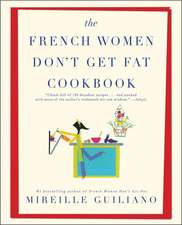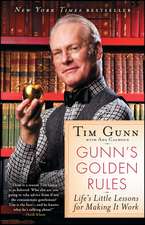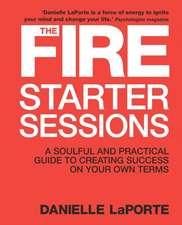Quiet: Broadway Books
Autor Susan Cainen Limba Engleză Paperback – 28 ian 2013
Vezi toate premiile Carte premiată
At least one-third of the people we know are introverts. They are the ones who prefer listening to speaking; who innovate and create but dislike self-promotion; who favor working on their own over working in teams. It is to introverts—Rosa Parks, Chopin, Dr. Seuss, Steve Wozniak—that we owe many of the great contributions to society.
In Quiet, Susan Cain argues that we dramatically undervalue introverts and shows how much we lose in doing so. She charts the rise of the Extrovert Ideal throughout the twentieth century and explores how deeply it has come to permeate our culture. She also introduces us to successful introverts—from a witty, high-octane public speaker who recharges in solitude after his talks, to a record-breaking salesman who quietly taps into the power of questions. Passionately argued, superbly researched, and filled with indelible stories of real people, Quiet has the power to permanently change how we see introverts and, equally important, how they see themselves.
Now with Extra Libris material, including a reader’s guide and bonus content
| Toate formatele și edițiile | Preț | Express |
|---|---|---|
| Paperback (2) | 58.85 lei 24-35 zile | +21.65 lei 7-11 zile |
| Penguin Books – 16 ian 2013 | 58.85 lei 24-35 zile | +21.65 lei 7-11 zile |
| BROADWAY BOOKS – 28 ian 2013 | 81.31 lei 3-5 săpt. | +13.11 lei 7-11 zile |
| Hardback (1) | 179.30 lei 3-5 săpt. | +28.06 lei 7-11 zile |
| Crown Publishing Group (NY) – 31 dec 2011 | 179.30 lei 3-5 săpt. | +28.06 lei 7-11 zile |
Din seria Broadway Books
-
 Preț: 110.32 lei
Preț: 110.32 lei -
 Preț: 130.86 lei
Preț: 130.86 lei -
 Preț: 110.30 lei
Preț: 110.30 lei -
 Preț: 88.66 lei
Preț: 88.66 lei -
 Preț: 115.50 lei
Preț: 115.50 lei -
 Preț: 113.56 lei
Preț: 113.56 lei -
 Preț: 91.68 lei
Preț: 91.68 lei -
 Preț: 111.37 lei
Preț: 111.37 lei -
 Preț: 124.39 lei
Preț: 124.39 lei - 16%
 Preț: 89.94 lei
Preț: 89.94 lei -
 Preț: 113.42 lei
Preț: 113.42 lei -
 Preț: 98.10 lei
Preț: 98.10 lei -
 Preț: 189.86 lei
Preț: 189.86 lei -
 Preț: 115.02 lei
Preț: 115.02 lei
Preț: 81.31 lei
Nou
15.56€ • 16.90$ • 13.07£
Carte disponibilă
Livrare economică 01-15 aprilie
Livrare express 18-22 martie pentru 23.10 lei
Specificații
ISBN-10: 0307352153
Pagini: 352
Dimensiuni: 131 x 204 x 25 mm
Greutate: 0.32 kg
Editura: BROADWAY BOOKS
Colecția Broadway Books
Seria Broadway Books
Notă biografică
She has appeared on national broadcast television and radio including CBS “This Morning,” NPR’s “All Things Considered,” NPR’s “Diane Rehm,” and her work has been featured in The New Yorker, Harvard Business Review, The Atlantic, Wired, Fast Company, Real Simple, Fortune, Forbes, PEOPLE, Scientific American, USA Today, The Washington Post, CNN, Slate.com, and many other publications. She is an honors graduate of Princeton and Harvard Law School. She lives in the Hudson River Valley with her husband and two sons. You can visit her at www.thepowerofintroverts.com., and follow her on twitter (@susancain).
Extras
If these statistics surprise you, that’s probably because so many people pretend to be extroverts. Closet introverts pass undetected on playgrounds, in high school locker rooms, and in the corridors of corporate America. Some fool even themselves, until some life event—a layoff, an empty nest, an inheritance that frees them to spend time as they like— jolts them into taking stock of their true natures. You have only to raise the subject of this book with your friends and acquaintances to find that the most unlikely people consider themselves introverts.
It makes sense that so many introverts hide even from themselves. We live with a value system that I call the Extrovert Ideal—the omnipresent belief that the ideal self is gregarious, alpha, and comfortable in the spotlight. The archetypal extrovert prefers action to contemplation, risk- taking to heed-taking, certainty to doubt. He favors quick decisions, even at the risk of being wrong. She works well in teams and socializes in groups. We like to think that we value individuality, but all too often we admire one type of individual—the kind who’s comfortable “putting himself out there.” Sure, we allow technologically gifted loners who launch companies in garages to have any personality they please, but they are the exceptions, not the rule, and our tolerance extends mainly to those who get fabulously wealthy or hold the promise of doing so.
Introversion—along with its cousins sensitivity, seriousness, and shyness—is now a second- class personality trait, somewhere between a disappointment and a pathology. Introverts living under the Extrovert Ideal are like women in a man’s world, discounted because of a trait that goes to the core of who they are. Extroversion is an enormously appealing personality style, but we’ve turned it into an oppressive standard to which most of us feel we must conform.
The Extrovert Ideal has been documented in many studies, though this research has never been grouped under a single name. Talkative people, for example, are rated as smarter, better- looking, more interesting, and more desirable as friends. Velocity of speech counts as well as volume: we rank fast talkers as more competent and likable than slow ones. The same dynamics apply in groups, where research shows that the voluble are considered smarter than the reticent—even though there’s zero correlation between the gift of gab and good ideas. Even the word introvert is stigmatized—one informal study, by psychologist Laurie Helgoe, found that introverts described their own physical appearance in vivid language ( “green- blue eyes,” “exotic,” “high cheekbones”), but when asked to describe generic introverts they drew a bland and distasteful picture (“ungainly,” “neutral colors,” “skin problems”).
But we make a grave mistake to embrace the Extrovert Ideal so unthinkingly. Some of our greatest ideas, art, and inventions—from the theory of evolution to van Gogh’s sunflowers to the personal computer— came from quiet and cerebral people who knew how to tune in to their inner worlds and the treasures to be found there.
Copyright © 2012 by Susan Cain. From the book QUIET: The Power Of Introverts in a World That Can’t Stop Talking by Susan Cain, published by Crown, a division of Random House, Inc. Reprinted with permission.
Recenzii
NPR BESTSELLER
WASHINGTON POST BESTSELLER
LOS ANGELES TIMES BESTSELLER
USA TODAY TOP 50 BESTSELLER
INDIEBOUND BESTSELLER
PUBLISHERS WEEKLY BESTSELLER
Fast Company’s #1 Best Business book of 2012
INC Magazine’s Best 2012 Books for Entrepreneurs
People Magazine’s 10 Best Books of 2012
O, The Oprah Magazine 10 Favorite Books of 2012
Christian Science Monitor’s Best Books of 2012
GoodReads Nonfiction Choice Award Winner
Audible’s #1 Non-Fiction book of 2012
Amazon’s Best Books of 2012
Barnes & Noble Best Books of 2012
Library Journal’s Best Books of 2012
Kirkus REVIEWS’ Best Books of 2012
"An important book that should embolden anyone who's ever been told, 'Speak up!'"
—People
"Cain offers a wealth of useful advice for teachers and parents of introverts…Quiet should interest anyone who cares about how people think, work, and get along, or wonders why the guy in the next cubicle acts that way. It should be required reading for introverts (or their parents) who could use a boost to their self-esteem."
—Fortune.com
"Rich, intelligent...enlightening."
—Wall Street Journal
"An intriguing and potentially life-altering examination of the human psyche that is sure to benefit both introverts and extroverts alike."
—Kirkus, Starred Review
"Cain gives excellent portraits of a number of introverts and shatters misconceptions. Cain consistently holds the reader’s interest by presenting individual profiles, looking at places dominated by extroverts (Harvard Business School) and introverts (a West Coast retreat center), and reporting on the latest studies. Her diligence, research, and passion for this important topic has richly paid off."
—Publishers Weekly
"This book is a pleasure to read and will make introverts and extroverts alike think twice about the best ways to be themselves and interact with differing personality types."
—Library Journal
"An intelligent and often surprising look at what makes us who we are."
—Booklist
"Charm and charisma may be one beau ideal, but backed by first-rate research and her usual savvy, Cain makes a convincing case for the benefits of reserve."
—Harper's Bazaar
"Quiet is a thought-provoking and fascinating work that reminds us of the dangers of solely listening to the loudest voices."
—Psych Central
"In this well-written, unusually thoughtful book, Cain encourages solitude seekers to see themselves anew: not as wallflowers but as powerful forces to be reckoned with."
—Whole Living
"Cain’s Quiet revolution calls us all to rethink the way we value human contribution."
—Revel In It Mag
"Those who value a quiet, reflective life will feel a burden lifting from their shoulders as they read Susan Cain's eloquent and well documented paean to introversion--and will no longer feel guilty or inferior for having made the better choice!"
—MIHALY CSIKSZENTMIHALYI, author of Flow and Distinguished Professor of Psychology and Management, Claremont Graduate University
"Superbly researched, deeply insightful, and a fascinating read, Quiet is an indispensable resource for anyone who wants to understand the gifts of the introverted half of the population."
—GRETCHEN RUBIN, author of The Happiness Project
"Quiet is a book of liberation from old ideas about the value of introverts. Cain’s intelligence, respect for research, and vibrant prose put Quiet in an elite class with the best books from Malcolm Gladwell, Daniel Pink, and other masters of psychological non-fiction."
—TERESA AMABILE, Professor, Harvard Business School, and coauthor, The Progress Principle
"As an introvert often called upon to behave like an extrovert, I found the information in this book revealing and helpful. Drawing on neuroscientific research and many case reports, Susan Cain explains the advantages and potentials of introversion and of being quiet in a noisy world."
—ANDREW WEIL, author of Healthy Aging and Spontaneous Happiness
"Susan Cain has done a superb job of sifting through decades of complex research on introversion, extroversion, and sensitivity--this book will be a boon for the many highly sensitive people who are also introverts."
—ELAINE ARON, author of The Highly Sensitive Person
"Quiet legitimizes and even celebrates the ‘niche’ that represents half the people in the world."
—GUY KAWASAKI, author of Enchantment: The Art of Changing Hearts, Minds, and Actions
"Susan Cain is the definer of a new and valuable paradigm. In this moving and original argument, she makes the case that we are losing immense reserves of talent and vision because of our culture's overvaluation of extroversion. A startling, important, and readable page-turner that will make quiet people see themselves in a whole new light."
—NAOMI WOLF, author of The Beauty Myth
"Superb…A compelling reflection on how the Extrovert Ideal shapes our lives and why this is deeply unsettling. Based on meticulous research, it will open up a new and different conversation on how the personal is political and how we need to empower the legions of people who are disposed to be quiet, reflective, and sensitive."
—BRIAN R. LITTLE, PH.D., Distinguished Scholar, Department of Social and Developmental Psychology, Cambridge University
"Quiet elevates the conversation about introverts in our outwardly-oriented society to new heights. I think that many introverts will discover that, even though they didn't know it, they have been waiting for this book all their lives."
—ADAM S. MCHUGH, author of Introverts in the Church
"Gentle is powerful... Solitude is socially productive... These important counter-intuitive ideas are among the many reasons to take Quiet to a quiet corner and absorb its brilliant, thought-provoking message."
—ROSABETH MOSS KANTER, Harvard Business School professor, author of Confidence and SuperCorp
"Memo to all you glad-handing, back-slapping, brainstorming masters of the universe out there: Stop networking and talking for a minute and read this book. In Quiet, Susan Cain does an eloquent and powerful job of extolling the virtues of the listeners and the thinkers--the reflective introverts of the world who appreciate that hard problems demand careful thought and who understand that it's a good idea to know what you want to say before you open your mouth."
—BARRY SCHWARTZ, author of Practical Wisdom and The Paradox of Choice
“A smart, lively book about the value of silence and solitude that makes you want to shout from the rooftops. Quiet is an engaging and insightful look into the hearts and minds of those who change the world instead of tweeting about it.”
—DANIEL GILBERT, professor of psychology, Harvard University, author of Stumbling on Happiness
Cuprins
INTRODUCTION: The North and South of Temperament |
PART ONE: THE EXTROVERT IDEAL
1. THE RISE OF THE “MIGHTY LIKEABLE FELLOW”: How
Extroversion Became the Cultural Ideal |
2. THE MYTH OF CHARISMATIC LEADERSHIP: The
Culture of Personality, a Hundred Years Later |
3. WHEN COLLABORATION KILLS CREATIVITY:
The Rise of the New Groupthink and the Power of
Working Alone |
PART TWO: YOUR BIOLOGY, YOUR SELF?
4. IS TEMPERAMENT DESTINY?: Nature, Nurture, and the
Orchid Hypothesis |
5. BEYOND TEMPERAMENT: The Role of Free Will (and the
Secret of Public Speaking for Introverts) |
6. “FRANKLIN WAS A POLITICIAN,
BUT ELEANOR SPOKE OUT OF CONSCIENCE”:
Why Cool Is Overrated |
7. WHY DID WALL STREET CRASH AND WARREN
BUFFETT PROSPER?: How Introverts and Extroverts Think
(and Process Dopamine) Differently |
PART THREE: DO ALL CULTURES HAVE
AN EXTROVERT IDEAL?
8. SOFT POWER: Asian-Americans and the Extrovert
Ideal |
PART FOUR: HOW TO LOVE, HOW TO WORK
9. WHEN SHOULD YOU ACT MORE EXTROVERTED
THAN YOU REALLY ARE? |
10. THE COMMUNICATION GAP: How to Talk to
Members of the Opposite Type |
11. ON COBBLERS AND GENERALS: How to Cultivate
Quiet Kids in a World That Can’t Hear Them |
CONCLUSION: Wonderland |
A Note on the Dedication |
A Note on the Words Introvert and Extrovert |
Acknowledgments |
Notes |
Index |
Descriere
Quiet by Susan Cain will change how you think about introverts forever
A Sunday Times and New York Times Bestseller
Our lives are driven by a fact that most of us can't name and don't understand. It defines who our friends and lovers are, which careers we choose, and whether we blush when we're embarrassed.
That fact is whether we're an introvert or an extrovert.
The introvert/extrovert divide is the most fundamental dimension of personality. And at least a third of us are on the introverted side. Some of the world's most talented people are introverts. Without them we wouldn't have the Apple computer, the theory of relativity and Van Gogh's sunflowers.
Yet extroverts have taken over. Shyness, sensitivity and seriousness are often seen as being negative. Introverts feel reproached for being the way they are.
In Quiet, Susan Cain shows how the brain chemistry of introverts and extroverts differs, and how society misunderstands and undervalues introverts. She gives introverts the tools to better understand themselves and take full advantage of their strengths.
Passionately argued, superbly researched, and filled with real stories, Quiet will permanently change how we see introverts - and how you see yourself.
'I can't get Quiet out of my head. It is an important book - so persuasive and timely and heartfelt it should inevitably effect change in schools and offices' Jon Ronson, The Guardian
'Susan Cain's Quiet has sparked a quiet revolution. In our booming culture, hers is a still, small voice that punches above its weight. Perhaps rather than sitting back and asking people to speak up, managers and company leaders might lean forward and listen' Megan Walsh, The Times
'Quiet is a very timely book, and Cain's central thesis is fresh and important. Maybe the extrovert ideal is no longer as powerful as it was; perhaps it is time we all stopped to listen to the still, small voice of calm' Daisy Goodwin, The Sunday Times
Susan Cain is the owner of The Negotiation Company, a firm that trains people in negotiation and communication skills. Her clients include Merrill Lynch, Standard & Poor, University of Chicago Business School and many of the US's most powerful law firms. She previously practiced corporate law for seven years with Cleary Gottlieb Steen & Hamilton. She lives in New York with her husband and two sons. www.ThePowerOfIntroverts.com
Premii
- Books for a Better Life Finalist, 2012
- ALA Notable Books Winner, 2013
- L.A. Times Book Prize Finalist, 2012
- Indies Choice Book Awards Honor Book, 2013

















